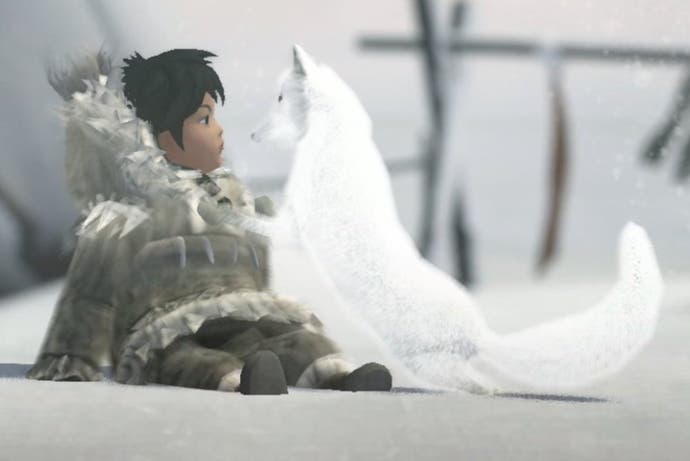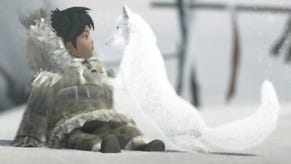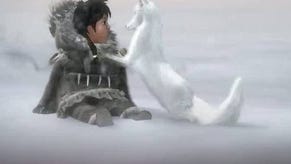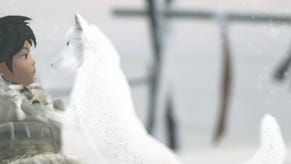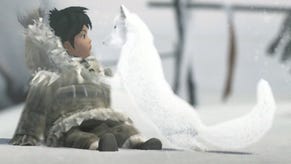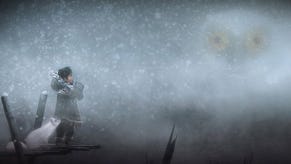Never Alone review
It's cold outside.
I approach life from a different perspective than most. I'm American Indian, and the fact that my culture and my people are moving closer to extinction all the time isn't something I often forget. As I grow, a fatalistic phrase has come to summarise my relationship with the modern American Indian experience.
"It is a good day to die."
It's a phrase often wrongly attributed to an old Sioux battle cry, and while it's loosely accurate, its true meaning has been forgotten. As my culture becomes increasingly diluted, it seems everything that we once were is steadily fading into obscurity. It can be far too easy to accept the death of hundreds of culturally rich histories.
I've internalised complacency, this casual belief that there's no point in trying to keep traditions alive, because in a few generations they'll be lost no matter what I do. It's a mentality I've seen echoed a few times in games - the Ashlanders of Morrowind, the Krogan of Mass Effect. Never Alone (Kisima Ingitchuna in Iñupiaq) is different. Its very existence challenges me. Instead of eliciting self-pity, it stands in absolute defiance of everything that I've grown to be, not only telling me to be better, but showing me how.
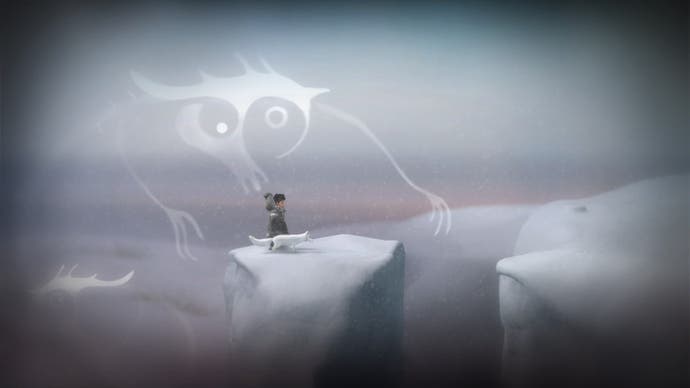
Never Alone is the result of a collaboration between some gaming industry veterans, an educational group, and actual Alaskan Natives. Just writing that is surreal to me, something I never thought could happen. That alone should be cause for celebration, but Never Alone is also stunningly poignant - and quite brilliant.
You'll play as two characters: Nuna, a young Iñupiaq girl, and her companion, an arctic fox. A blizzard has brought Nuna's village to the brink of starvation. Seeing her people suffer, she decides to find the source of the blizzard and stop it. That set-up immediately communicates a sense of initiative, empathy, and connectedness.
It's the only direct characterization Nuna receives, but that's okay. Never Alone isn't about one person, and instead the narrative is linked to an explanation of the natural and a warning of the enigmatic dangers of the Arctic. It's a fable - a story that's passed on from the old to the young to explain how the world works, and how we can cope with it. Understanding that approach is an important part of understanding this story.
When I was very young, an elder saw within me the love of fire, but she also saw that I liked to take sticks from the flames and dip them in a nearby pond. In my tribe, fire is holy, and extinguishing it prematurely was forbidden. "Fire," she whispered, "means everything. It protects us, lights our world, keeps us warm, the smokes carries our prayers, and it makes food safe. It is a piece of the spirit of the One Who Sits Above."
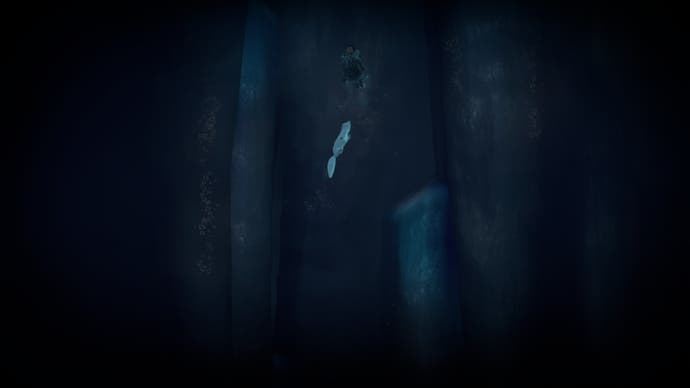
Those words might not make sense to most people, but context matters. Historically, fire is tough to make. It takes a lot of patience, at the very least. More poetically, it can feel like a little piece of daylight, a chunk of the sun over which you have some brief control. From that perspective, from the point of view of dependence, staying up late to tend a fire in a respectful way makes sense.
Never Alone is an interactive piece of folklore. It creates a tangible space to test these kinds of lessons, and that is intentional. At one point the narrator, speaking in Native Iñupiaq says, "The aurora itself came swooping down from the sky, in search of those not adhering to the elder's wisdom."
That line held weight for me, using little to imply much. Elders are the ones that tell the stories, the ones that prepare the younger generations for the world. Their role is more than symbolic, more than religious. It's about teaching survival using fables reworked and twisted through thousands of years of oral tradition. And as I've come to learn, the Arctic is a tough place to eke out subsistence.
Most of the time, Never Alone is a peaceful trot through the ice and snow. It's serene, it's meditative. The soundscape is minimal and it gently presses on you with a graphical filter and shallow depth of field that gave the impression of watching this girl's trek through increasingly weary eyes. That listless aura gave way to an atmosphere of omnipresent peril and anxiety around 90 minutes into my two-hour run, though.
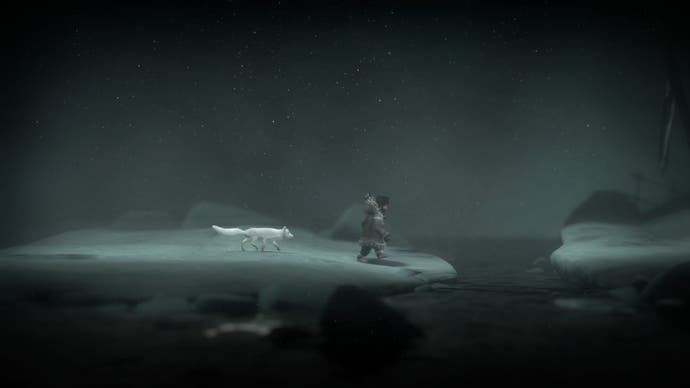
There's a rough difficulty spike at that point; until then, the game had been little more than simple jumps and a few challenging puzzles. Typically, Never Alone has you controlling both characters somewhat simultaneously. They each have slightly different abilities, and they need each other to progress. That's a strong, and increasingly common way to lay the groundwork for a powerful metaphor of interdependence, and it works excellently here... until it doesn't. Instead of being able to calmly figure out solutions and find my way, I felt as if I was being thrust into an obnoxiously difficult segment for which I had no preparation. I was wholly prepared to call it one of the biggest disappoints of my gaming career, shifting as it does from placid perfection to controller-snapping frustration in mere moments.
Then, I rethought it a bit.
"Never Alone."
There's a resonance to that title that seeps into the game, pushing you to engage with one of the game's themes through interaction - a moment that's best preserved for you to discover yourself. It helps make Never Alone metaphorically whole; the narration matches the play, and the play matches reality.
It would have been easy for this to have become just another cheap, educational game. It would have been easy to phone it in and bank on just being different enough to justify itself. But Never Alone is so much more than that. It carries the sensibilities of its inspirations, and it feels and looks just as it should. There's some irritation there, but like the best folk tales, Never Alone is all about sharing the game with someone else.
Sometimes I'll find myself frustrated with the way history has played out. It's easy for me to harbour anger about the past, and for me to seek some catharsis to ease that racial anger. Never Alone offers a different path though. Recipes can be shared. Lessons can be taught. Words can be spoken.
For the first time, I'm beginning to think today's an awful day to die. We still have so much work to do, but now I know I'm kisima ingitchuna.
